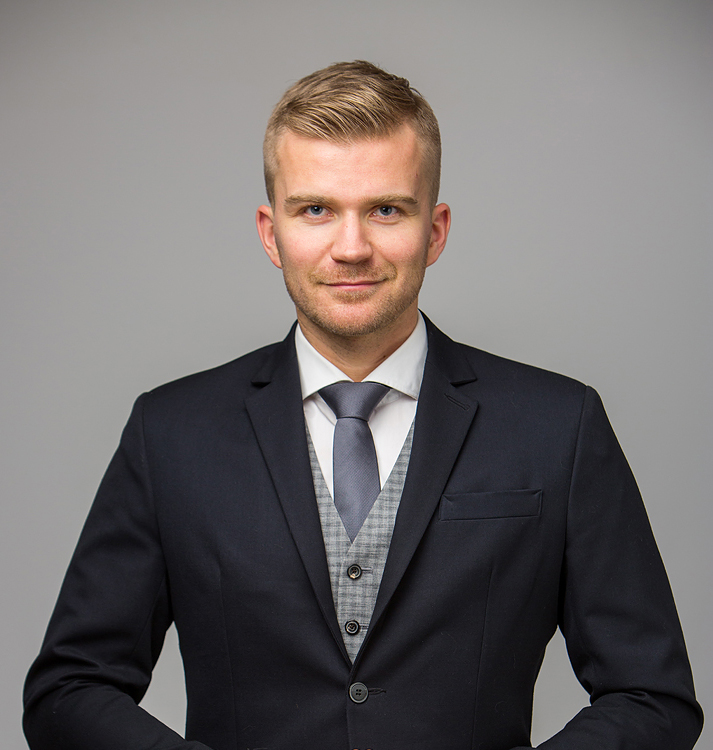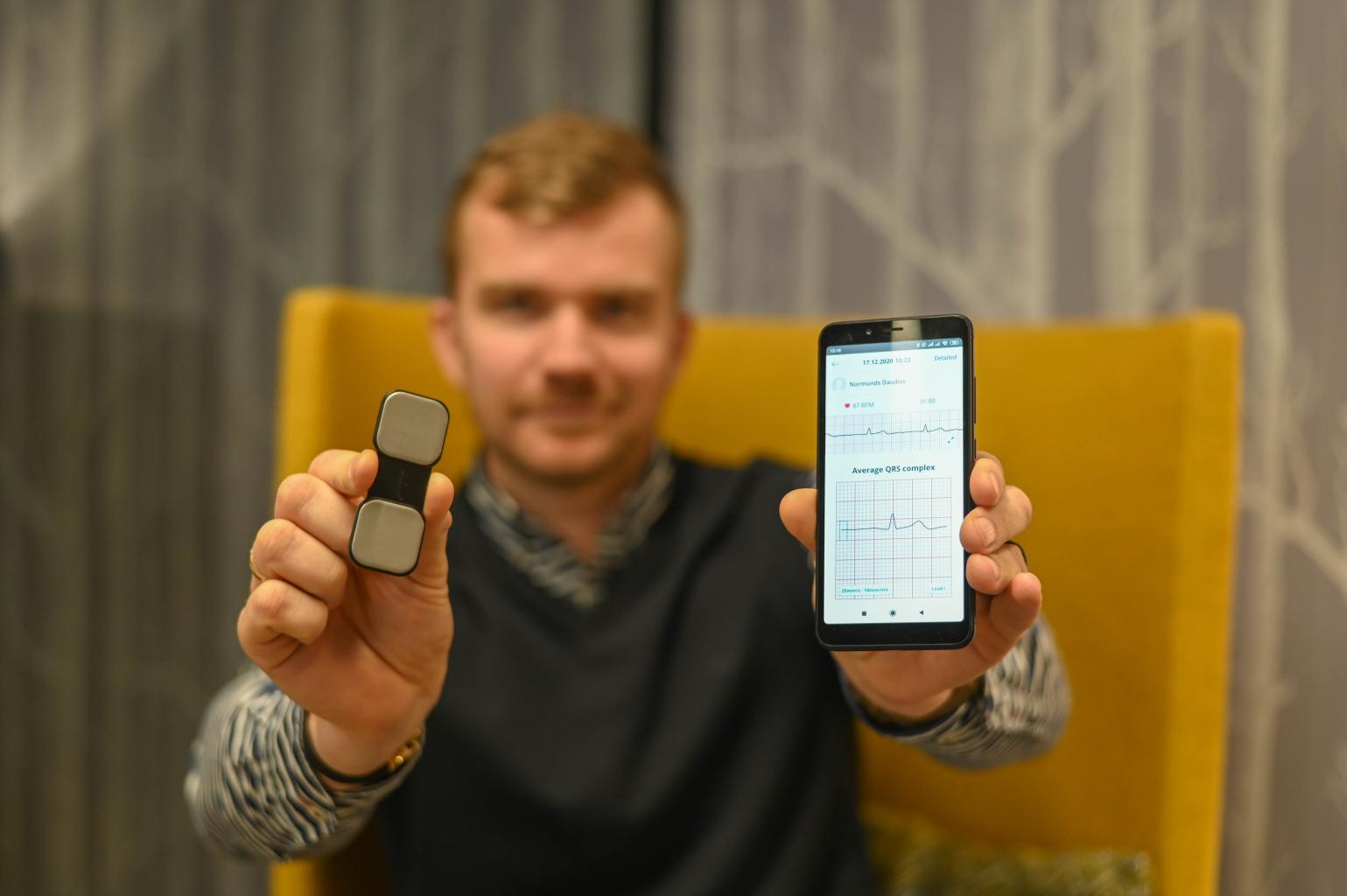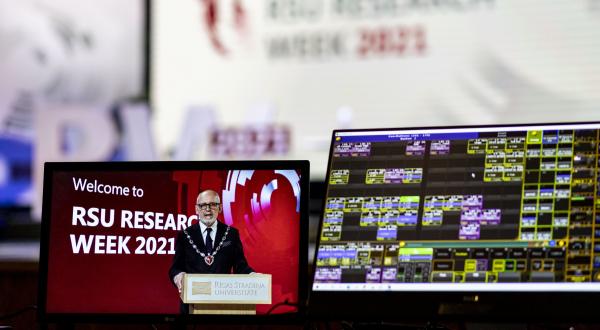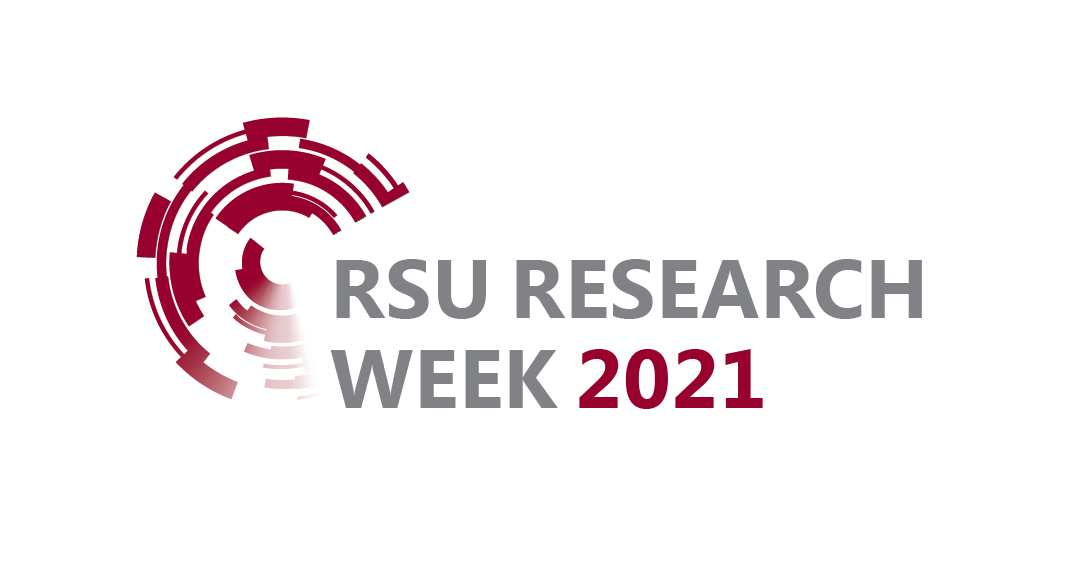Normunds Daudišs: How Digital Health Technologies Could Contribute to the Latvian Healthcare System
Normunds Daudišs is the founder of a new healthcare company who sees great potential in the impact that digital health technologies could have on the healthcare system and people’s everyday lives.

Willing to show what Latvia can accomplish in this field he created the Latvian-registered brand UPOlife two years ago, which offers heart health monitoring technologies.
Please tell us a bit more about yourself and UPOLife.
I am interested in how digital health technologies can contribute to the modern healthcare system. For that reason, we started a pilot project for children in Latvian schools six years ago. As part of the project, we tested their heart health with equipment and software created in Latvia. The project allowed us to understand how we can help discover various heart problems that are not measured and tested on a national scale in time. Four years ago, I started to commercialise the innovative technology for a Finnish company working in this field.
But since I have always wanted to introduce Latvian values to this process, we created the brand UPOLife and registered it in Latvia two years ago. UPOLife offers heart health monitoring technologies with a focus on users who are at risk and whom we can help. In this case, we partner with healthcare providers who can monitor patients’ health status remotely.

According to the World Health Organisation, 69% of chronic patients have experienced disruptions in patient care and visits to the doctor during the COVID-19 pandemic.
The only way to help patients with chronic conditions, including heart problems, is not to postpone visits, as is currently the case, but to offer digital solutions and remote technologies to aid communication and monitor patients' health.
What drew you to this field? Have you studied medicine?
No, I don't have a medical education, but if I'm interested in an industry, I start researching it. My background is in entrepreneurship, and I am attracted to innovation – the potential that technology can give a certain industry, solve a specific problem, and so on.
I am the one who brings medical professionals and technology providers together with whom we can then think about how to integrate innovation into modern systems.
This is not always easy because people are not always ready for digital technologies.
Why did you choose heart health?
My partners got me interested when they discussed the topic. According to statistics, heart diseases are the leading cause of death in the world, and heart problems run in my family. Medical heart data is not so easy for individuals to interpret compared with blood pressure, for example, where it is easy to see if it is elevated. Electrocardiograms are quite difficult to read and understand without a doctor. There are, however, technologies that can do it. I became interested in the field when I saw the great potential that technology could bring to this area in the future.
Did the pandemic change anything in your plans?
In general, I would say that our direction has not changed. But it has definitely speeded up the process a lot, as stakeholders express a growing interest.
If in the past it took a long time for technologies to reach the end consumer, now this happens much faster. Because most things are taking place remotely at the moment it is much easier to talk to stakeholders because there are simply no other options: if a new technology isn’t used, patients or the whole healthcare system may suffer.
How do you cooperate with other industries and specialists?
There are industries that have included healthcare as part of their new business model over the last few years, like telecommunications and cloud service providers, such as Microsoft. This aligns with my interests. Currently, we have established successful cooperation with the Latvian Centre of Cardiology and both general practitioner associations. We have put together a project concept where LMT connects general practitioners with our cloud data analytics solution. We have distributed a digital device for heart measurements to 40 Latvian general practitioners. Unfortunately, due to the pandemic, the planned number of patients involved in the project decreased quite rapidly, because due to the strict restrictions last autumn patients got scared and did not go to see their doctors for scheduled control measurements.
Is this the first conference where you present your digital solutions and ideas?
No, over the past year I have attended a lot of conferences and various medical events, both in person and remotely. We have even attempted online poster presentations, even though it's important to participate it is challenging because people are tired of online solutions, even if the content is interesting to them. The interactive part, the networking and efforts to attract customers online is also challenging.
What do you expect from attending the conference?
I am very glad that something like this is happening in Latvia! Our greatest potential lies in the competence of our doctors and I want to support Latvian doctors’, researchers’, and professionals’ expertise being invested into commercialised projects by bringing together the right stakeholders. I hope that conferences like this will help develop it.
By participating in the conference, I want to attract cooperation partners, or people who might be interested in similar solutions. For example, I have already talked to RSU and looked at their portfolio of patentable technologies to see if there is any overlap for possible cooperation. I want to hear other speakers to understand how far we have come and to share my experience to see it from the perspective of our neighbouring countries. It is good to hear about what is happening in Latvia and around the world. I am interested in transferring innovation and technology from the university and its specialists to something commercialisable.
Innovations partner Latvijas Mobilais Telefons
Related news
 RSU Research Week Breaks Attendance RecordGeneral, RW Deep Dive
RSU Research Week Breaks Attendance RecordGeneral, RW Deep Dive
